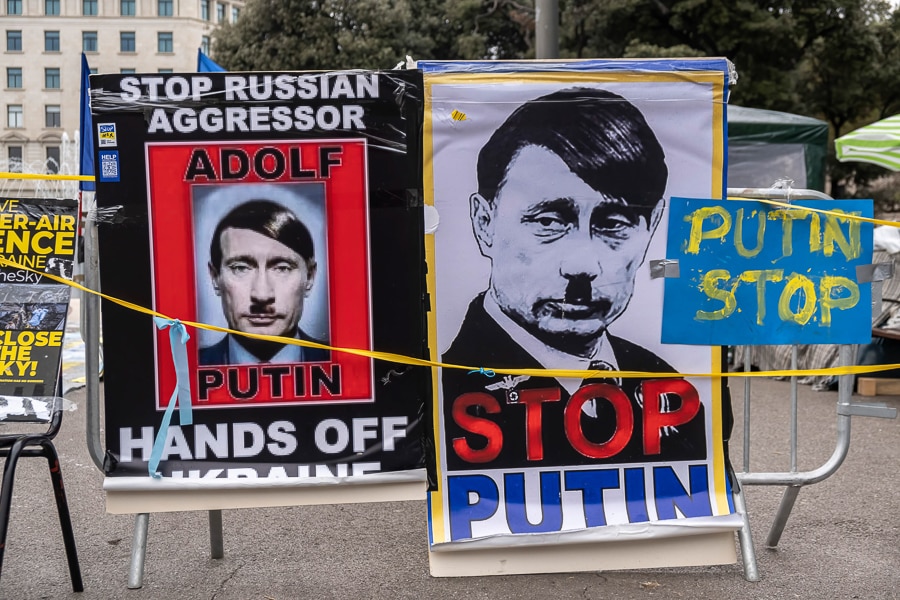
German WWII ghosts loom large in Ukraine crisis
World War II still looms large in Germans' living memory and public discourse, shaping the perception of the Ukraine invasion and the political debate over how to face the moment
 Posters depicting Russian President Vladimir Putin as Adolf Hitler are seen in Plaza Catalunya. There has been widespread opposition to Russia's invasion of Ukraine, with protests taking place in many European cities. Image: Paco Freire/SOPA Images/LightRocket via Getty Images
Posters depicting Russian President Vladimir Putin as Adolf Hitler are seen in Plaza Catalunya. There has been widespread opposition to Russia's invasion of Ukraine, with protests taking place in many European cities. Image: Paco Freire/SOPA Images/LightRocket via Getty Images
Berlin, Germany: The war weighs heavy on Ilse Thiele's mind these days as she sits in the floral print armchair in her Berlin living room, the television constantly tuned to the news from Ukraine.
"Of course, all the memories come flooding back," the 85-year-old retired manager of an East German post office says, as she watches the streams of exhausted refugees meeting armies of volunteers just minutes away at Berlin's main train station.
"I feel so sorry for all those people, especially the children."
Thiele recalls the biting cold and ache of hunger on her own trek from Lower Silesia in today's Poland in the winter of 1944-45, when she and her mother fled the Russian advance on foot for Thuringia in central Germany.
World War II still looms large in Germans' living memory and public discourse, shaping the perception of the Ukraine invasion and the political debate over how to face the moment.







